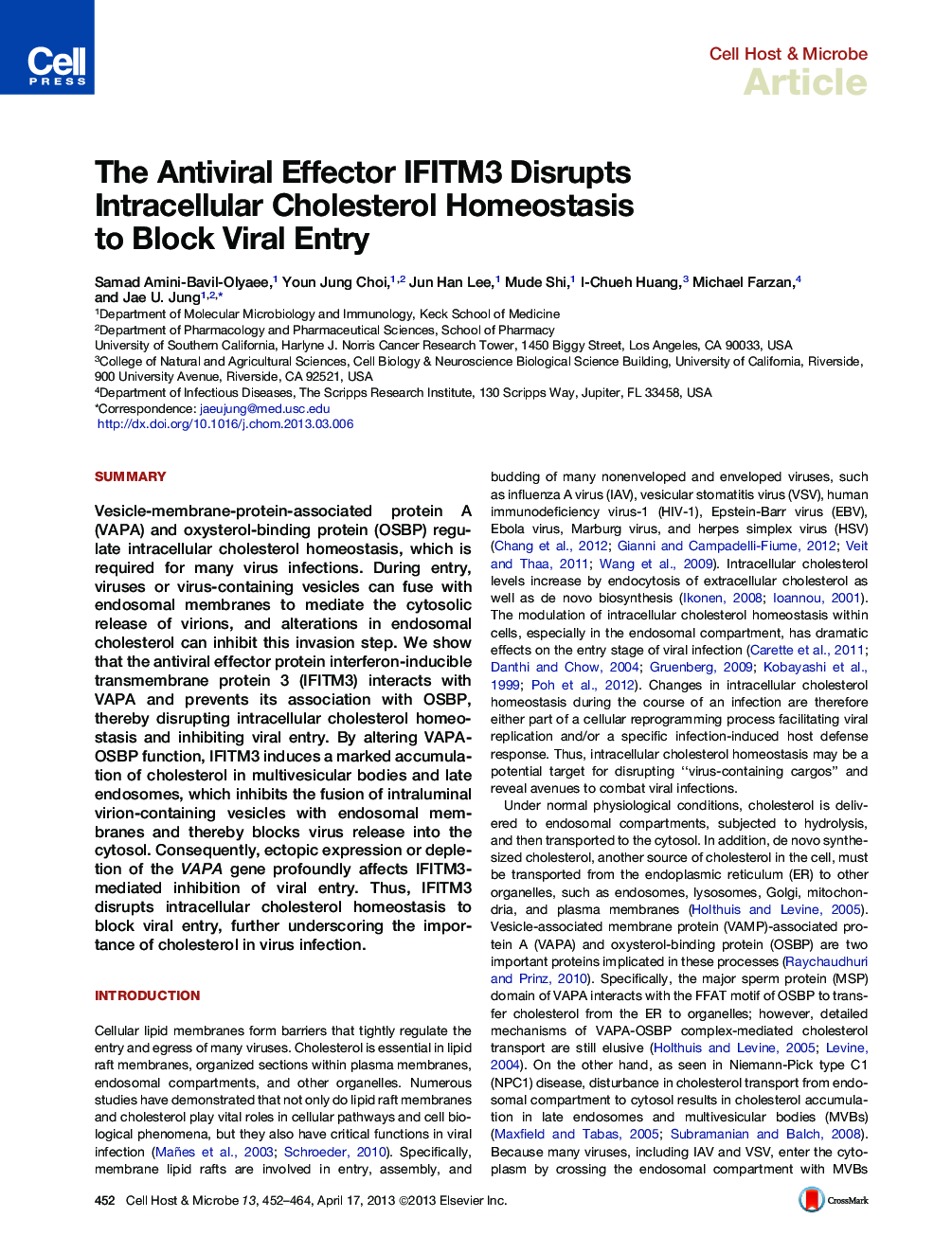| Article ID | Journal | Published Year | Pages | File Type |
|---|---|---|---|---|
| 4361281 | Cell Host & Microbe | 2013 | 13 Pages |
SummaryVesicle-membrane-protein-associated protein A (VAPA) and oxysterol-binding protein (OSBP) regulate intracellular cholesterol homeostasis, which is required for many virus infections. During entry, viruses or virus-containing vesicles can fuse with endosomal membranes to mediate the cytosolic release of virions, and alterations in endosomal cholesterol can inhibit this invasion step. We show that the antiviral effector protein interferon-inducible transmembrane protein 3 (IFITM3) interacts with VAPA and prevents its association with OSBP, thereby disrupting intracellular cholesterol homeostasis and inhibiting viral entry. By altering VAPA-OSBP function, IFITM3 induces a marked accumulation of cholesterol in multivesicular bodies and late endosomes, which inhibits the fusion of intraluminal virion-containing vesicles with endosomal membranes and thereby blocks virus release into the cytosol. Consequently, ectopic expression or depletion of the VAPA gene profoundly affects IFITM3-mediated inhibition of viral entry. Thus, IFITM3 disrupts intracellular cholesterol homeostasis to block viral entry, further underscoring the importance of cholesterol in virus infection.
► IFITM3 antagonizes VAPA-OSBP function to disturb intracellular cholesterol homeostasis ► IFITM3-induced endosomal cholesterol increase inhibits vesicle fusion and viral entry ► VAPA releases IFITM3-induced inhibition of vesicle fusion, allowing viral entry
